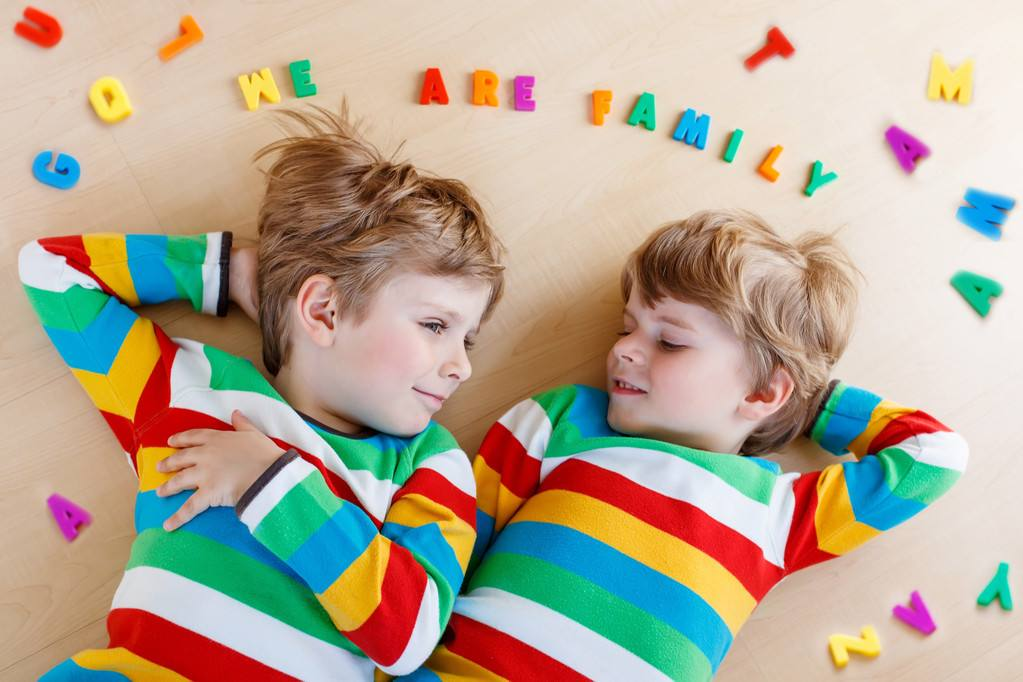
Having an older brother comes with plenty of benefits. Big brothers tend to look after their younger brothers and sisters, and despite the occasional unpleasant moment here and there, many siblings enjoy life-long close relationships. However, a new study finds an interesting disadvantage. Children with older brothers take longer when it comes to developing language skills.
Researchers studied more than 1,000 children from birth to the age of five-and-a-half years old. Each child’s language skills were tested at ages 2, 3, and 5.5, using tests specially designed to measure lots of aspects of language development such as vocabulary, syntax, and verbal reasoning. What the research team discovered was significant. Children with an older brother had, on average, a two-month delay in their language development compared to studied children with an older sister.
As far as explaining this phenomenon, researchers have proposed two assumptions. The first is that older sisters tend to talk more often than older brothers, which would compensate for parents potentially being less present than they were for their first child. The second assumption is that older sisters usually compete with their siblings less than older brothers for their parents’ attention. The study’s authors say they can’t say for certain why children with older brothers have a harder time developing language skills. In the future they would like to study if culture or location impacts the prevalence of these results.
The study is published in Psychological Science.
本时文内容由奇速英语国际教育研究院原创编写,未经书面授权,禁止复制和任何商业用途,版权所有,侵权必究!(作者投稿及时文阅读定制请联系微信:400-1000-028)
1.Who might be tested in the language skills tests according to paragraph two?
A Alice who is working in the hospital.
B Lucy who is a middle school student.
C Gary who will graduate from primary school next year.
D Adam who is still learning how to speak.
解析:选D。推理判断题。根据第二段Researchers studied more than 1,000 children from birth to the age of five-and-a-half years old.研究人员调查了1000多个从新生儿到5岁半之间的孩子。可推断选项D属于0到五岁半的孩子,故选D。
2.Which of the following does not belong to part of the language skills test?
A Vocabulary.
B Syntax.
C Art.
D Verbal Reasoning.
解析:选C。细节理解题。根据第二段...using tests specially designed to measure lost of aspects of language development such as vocabulary, syntax, and verbal reasoning.可知,选项C并未提及,故选C。
3.Which of the following statements is TRUE according to the passage?
A Children with older brothers spend less time developing language skills.
B Children with older brothers are much smarter.
C Older sisters tend to talk less than older brothers.
D We don’t know why children with older brothers have more trouble developing language skills.
解析:选D。细节理解题。根据第三段The study’s authors say they can’t say for certain why children with older brothers have a harder time developing language skills.,研究作者称,到目前为止,他们无法明确说出为什么有哥哥的孩子学语言更困难,故选D。
4.What can we infer from the passage?
A There are more advantages than disadvantages of having older brothers.
B Older brothers usually want to get more attention from their parents than older sisters.
C It is true that older sisters usually get more attention from their parents than older brothers.
D If culture or location influences the prevalence of these results, the researchers will study more.
解析:选B。推理判断题。根据第三段The second assumption is that older sisters usually compete with their siblings less than older brothers for their parents’ attention.第二种是,相比哥哥,姐姐通常比较不会和弟妹争宠。可知选项B正确,结合全文可知选项ACD错误,故选B。